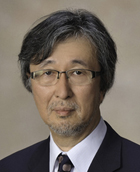 |
Asia Pacific Spine Society (APSS), formerly known as the Spine Section of Asia Pacific Orthopaedic Association (APOA), has been running many activities since the formation of Western Pacific Orthopaedic Association (WPOA). Our activities include a part of APOA Scientific Meeting, known as the APOA Congress, and Combined Scientific Meeting with APPOS, formerly known as the Paediatric Orthopaedic Section of APOA. With the recent completion of the remarkably successful 10th Combined Congress of the APSS and APPOS held in June 2015 in Hong Kong, I would like to congratulate and express my deepest appreciation to the Congress Chairman, Professor Kenneth Cheung, and his organising team. In 2017, we look forward to bring to you the 11th Combined Congress of the APSS and APPOS in Goa, India.
Besides the scientific meeting, some of the educational activities that we hold are surgical courses. These courses are held biannually, and they were held in many developing cities in Asia Pacific such as Hanoi, Yangon, Kathmandu, Manila, Ganga, Bandung, etc. They had been successfully worked out with the collaboration of the competent local hosts and enthusiastic council members of APSS for the purpose of initiation and advancement of education, as well as encouraging the young spine surgeons through live spine surgeries, lectures, workshops and discussions. Future surgical courses in 2016 will be in Phnom Penh, Cambodia from 17-19 February, and in Surabaya, Indonesia in December. In addition, we will hold a cadaveric spine course in Bangalore, and co-organise another cadaveric course in Hong Kong with Scoliosis Research Society (SRS) in 2016. I expect that many surgeons from the hosting chapters and other chapters around the region will participate in and benefit greatly from the courses.
Other important educational activities pioneered by the APSS are the traveling and clinical fellowship programmes. Every year, APSS has been consistent in offering many fellows the opportunities to be attached to the spine centres of excellence in the region. The fellows are selected by a committee and sent to be trained by the dedicated and highly skilled council members of the APSS. Fellows must have favourable experience in spine surgeries and are expected to encounter with different cultures. APSS strives to continue to offer the fellowship programmes with more focus on the orthopaedic and spine surgeons from the developing nations.
As an established spine society, the APSS covers a wide area of the Asian continent and Pacific region. In the Asia Pacific region, the society has the participation of both developed and developing chapters for spine surgeries. As a whole, we aim to share the knowledge and expertise in modernising the spine care for all patients suffering from spinal disorders in the Asia Pacific. We envision that both developed and developing countries in the region to establish and maintain the highest level of spine management in the future.
To conclude, I would like to welcome all of you, young and experienced spine surgeons, to join us in working together for the development of spine surgery in the Asia Pacific region.
Kuniyoshi Abumi
President of APSS (2015-2017)